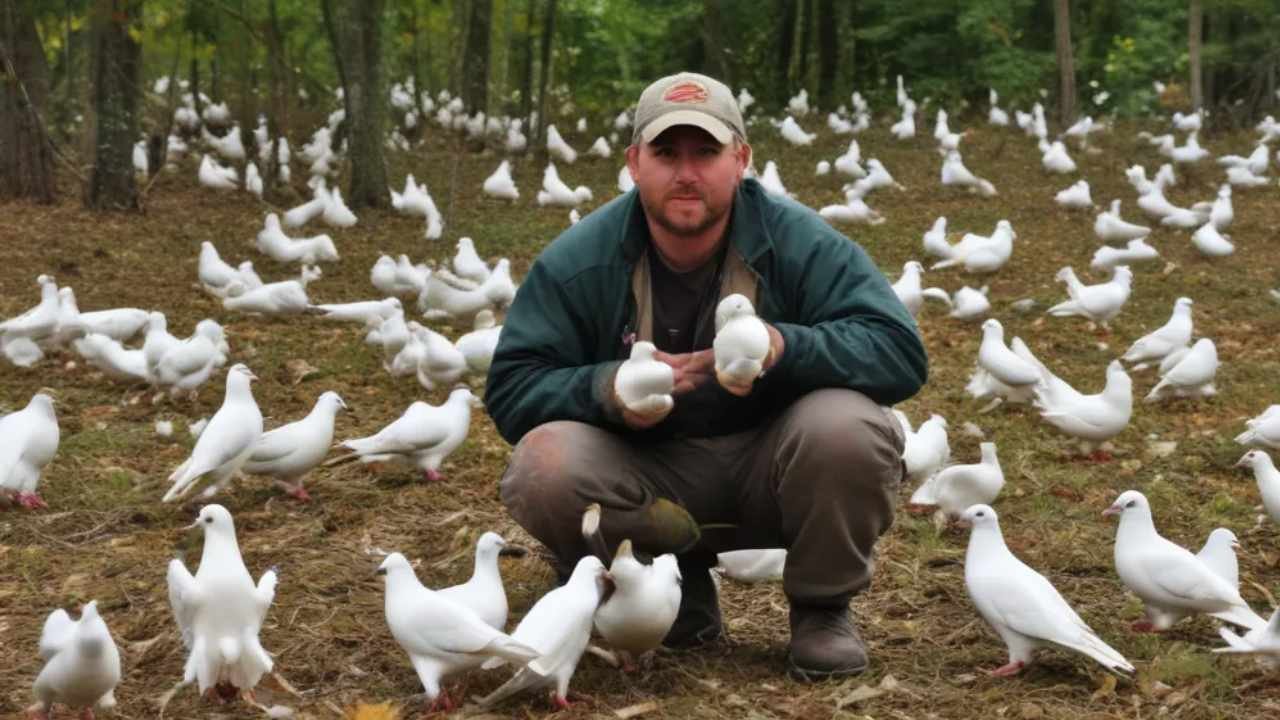Are you a Michigan hunter with a passion for wingshooting? Does the arrival of dove season ignite your excitement for the outdoors? If so, this comprehensive guide is your one-stop resource for everything related dove hunting in Michigan for the 2024-2025 season. We’ll delve into dates, regulations, licensing costs, and even explore some of the top dove locations across the state.
Important Notice Regarding Mourning Dove Hunting
This information is intended to raise awareness about a potential change in Michigan’s hunting regulations. While mourning doves hatched in the state are currently protected, there have been discussions about allowing them to be hunted once they migrate south of the Michigan border.
Here are some key points to consider:
- An estimated four million mourning doves migrate from Michigan each fall.
- Despite this migration, the dove population has remained stable for the past 37 years.
- A bill proposing this change was previously introduced in 2000.
If you’re interested in learning more, please view the Michigan DNR notice.
When can you hunt doves in Michigan
Unlike some neighboring states, Michigan does not have a designated dove hunting season. However, mourning doves hatched in the state become fair game once they migrate south across the Michigan border. This typically occurs in early September.
Mourning doves are typically not permitted as legal game in Michigan but dove opportunities may available in the south of the Michigan border as per DNR Announcement.
Understanding Dove Regulations
While there’s no designated dove season in Michigan, the Michigan Department of Natural Resources (MDNR) still enforces regulations to ensure safety, ethical hunting practices, and the sustainability of dove populations. Here’s a breakdown of key regulations to remember:
- Daily Bag Limit: NA
- Possession Limit: NA
- Shotguns Only: Only shotguns with a capacity of no more than three shells (two in the magazine and one in the chamber) are permitted.
- Non-toxic Shot: The use of non-toxic shot is mandatory for doves.
- Hunting Hours: Adhere to federal migratory bird hunting hours, which typically begin half an hour before sunrise and end at sunset.
- Public vs. Private Land: Always obtain permission from the landowner before hunting on private property.
- Hunter Education: Hunters born on or after January 1, 1994, must successfully complete a hunter education course approved by the MDNR.
Securing Your Michigan Hunting License
To legally hunt in Michigan, you’ll need a valid hunting license. Here’s a table outlining the different licenses available and their associated costs:
| License Type | Cost (USD) |
|---|---|
| Resident Small Game Hunting License | $28 |
| Non-Resident Small Game Hunting License | $100 |
| Junior Hunting License (ages 12-17) | $10 |
| Michigan Migratory Bird Stamp (Required) | $10 |
Licenses can be conveniently purchased online through the M-License system, by phone at 517-284-6055, or in person at any MDNR Service Center or authorized license vendor.
Top Michigan Locations for Dove
Here are a few prime dove locations
- Southern Michigan: The agricultural landscapes of southern Michigan, particularly in counties like Lenawee, Monroe, and Branch, offer prime dove opportunities. Look for fields recently harvested of corn, soybeans, or sunflowers, as these areas become attractive feeding grounds for doves.
- Lower Peninsula Agroecoregions: The fertile fields and woodlot edges characteristic of the Lower Peninsula’s agroecoregions, such as the Saginaw Basin and the Lake Michigan Coastal Plain, can be productive dove watching spots.
- Public Hunting Lands: Public lands managed by the MDNR offer excellent opportunities for dove. Researching Wildlife Management Areas (WMAs) and State Forests near you might unveil hidden gems with abundant dove populations.
- Saginaw Bay: Located in the eastern part of the state, Saginaw Bay provides excellent dove opportunities. With its diverse habitat consisting of agricultural fields, wetlands, and woodlands, this area attracts migrating doves.
- Huron-Manistee National Forest: Covering a vast area in northern Michigan, the Huron-Manistee National Forest offers hunters a chance to explore expansive woodlands and open fields, providing ideal dove watching conditions.
- Southern Lower Peninsula: The southern part of the Lower Peninsula, including areas such as Lenawee, Monroe, and Branch counties, features a mix of agricultural lands and open spaces, attracting doves during their migratory season.
- Shiawassee River State Game Area: Situated in Saginaw County, the Shiawassee River State Game Area offers hunters a diverse landscape with wetlands, grasslands, and woodlots, creating an attractive habitat for doves.
- Pointe Mouillee State Game Area: Located in Monroe County, Pointe Mouillee State Game Area is known for its expansive marshes and wetlands, providing abundant food sources for doves and creating an excellent hunting environment.

